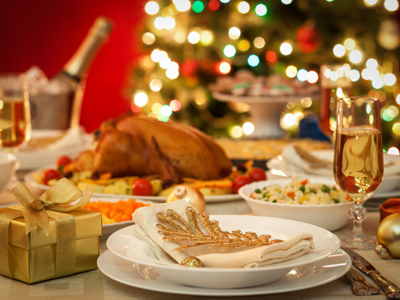

A Christmas Carol - Extract 2
This GCSE English Literature quiz is the second of two extract questions for A Christmas Carol by Charles Dickens. It takes place near the end of the novella after Scrooge has willingly received the visit of the final Spirit. Jacob Marley and the three Ghosts have each been to see Scrooge and to impart their messages to him. Scrooge has begun to have a change of heart towards those he has neglected, especially Bob Cratchit and his son, Tim. Scrooge also feels a little sorry for himself after overhearing both Mrs Cratchit and Fred’s wife criticise and poke fun at him. Stave Four takes Scrooge into some uncomfortable visions of the future “yet to come”.
How to answer an extract question in an exam:
It is always a good idea to read the passage through carefully more than once before attempting to answer an extract question for an exam.
“Spectre,” said Scrooge, “something informs me that our parting moment is at hand. I know it, but I know not how. Tell me what man that was whom we saw lying dead?”
The Ghost of Christmas Yet To Come conveyed him, as before — though at a different time, he thought: indeed, there seemed no order in these latter visions, save that they were in the Future — into the resorts of business men, but showed him not himself. Indeed, the Spirit did not stay for anything, but went straight on, as to the end just now desired, until besought by Scrooge to tarry for a moment.
“This court,” said Scrooge, “through which we hurry now, is where my place of occupation is, and has been for a length of time. I see the house. Let me behold what I shall be, in days to come!”
The Spirit stopped; the hand was pointed elsewhere.
“The house is yonder,” Scrooge exclaimed. “Why do you point away?”
The inexorable finger underwent no change.
Scrooge hastened to the window of his office, and looked in. It was an office still, but not his. The furniture was not the same, and the figure in the chair was not himself. The Phantom pointed as before.
He joined it once again, and wondering why and whither he had gone, accompanied it until they reached an iron gate. He paused to look round before entering.
A churchyard. Here, then, the wretched man whose name he had now to learn, lay underneath the ground. It was a worthy place. Walled in by houses; overrun by grass and weeds, the growth of vegetation’s death, not life; choked up with too much burying; fat with repleted appetite. A worthy place!
The Spirit stood among the graves, and pointed down to One. He advanced towards it trembling. The Phantom was exactly as it had been, but he dreaded that he saw new meaning in its solemn shape.
“Before I draw nearer to that stone to which you point,” said Scrooge, “answer me one question. Are these the shadows of the things that Will be, or are they shadows of things that May be, only?”
Still the Ghost pointed downward to the grave by which it stood.
“Men’s courses will foreshadow certain ends, to which, if persevered in, they must lead,” said Scrooge. “But if the courses be departed from, the ends will change. Say it is thus with what you show me!”
The Spirit was immovable as ever.
Scrooge crept towards it, trembling as he went; and following the finger, read upon the stone of the neglected grave his own name, EBENEZER SCROOGE.
“Am I that man who lay upon the bed?” he cried, upon his knees.
The figure pointed from the grave to him, and back again.
“No, Spirit! Oh no, no!”
The finger was still there.
Charles Dickens, A Christmas Carol (Odhams Press)
Ready for more?
not all...
quizzers. Try to win a coveted spot on our Hall of Fame Page.






